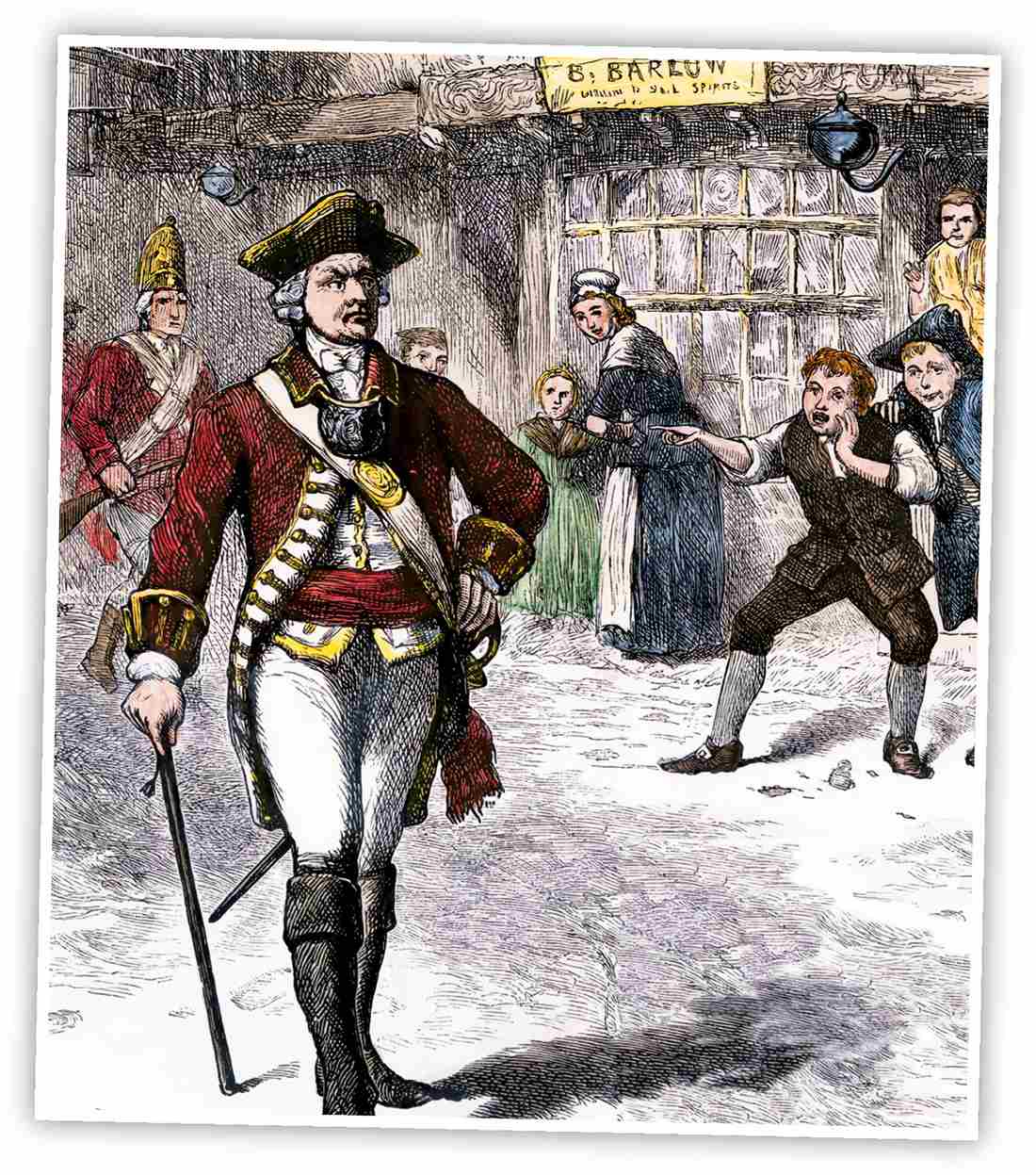CHAPTER 3

A King’s Soldier in Boston
“Redcoat!” a young boy yells. “Bloodyback!” Another boy hurls a rock along with his insults.
You duck just in time. In the last few months, people have tossed stones, dirt, ice, and snowballs at you as you walk the streets of Boston.
You’d like to knock some sense into the boys, but you can’t. You’re a soldier in the king’s army. Your job is to protect the people of Boston. It wouldn’t be right to strike out at them, even though they deserve it.
Boston schoolboys sometimes taunted and threw things at the British soldiers.
Some of your fellow soldiers are letting the tension get to them. One had too much to drink one night and rode his horse into a family’s parlor. Instead of being embarrassed, the soldier just laughed and rode back outside.
Some soldiers hold target practice outside churches on Sunday mornings to disturb the people inside. Others tease ladies on their way to market or steal apples from farmers’ carts. It seems childish to you, but you understand why they’ve decided to fight back. You’re all tired of being the enemy. When you see farmers coming to town on market day, you think about what a good life they must have.
One November day in 1769, you go to Piemont’s Barbershop for a shave. As you leave the shop, a man comes up to you. You’ve seen him before. He’s always been friendly and respectful.
“May I have a word, sir?” he asks. When you agree, he pulls you into a side alley.
“I have an opportunity for you,” he says. “There are some of us here in Boston who know you are not the enemy. Have you given any thought to staying here in the colonies?” He offers to help you settle in America if you’ll desert the British Army.
You’re tempted. There’s nothing for you in Britain. Your family is poor, and the life of a soldier is hard. The army pays very little. If you stay, you might be able to become a farmer. But you’ll be a deserter. The army hangs deserters. “We’ll protect you,” the man says. Can he?
